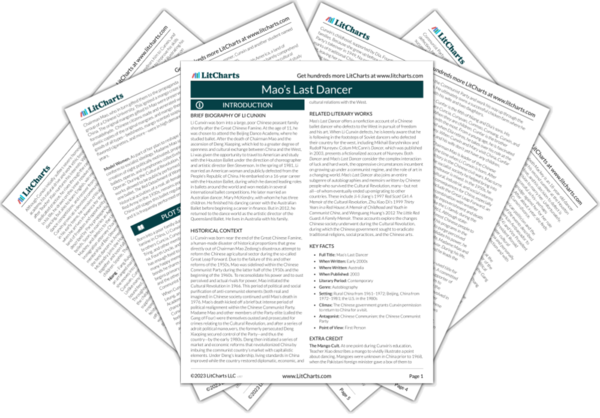Cunxin’s childhood coincides with the Cultural Revolution, a period of social and political upheaval as the Chinese Communist Party worked to purge allegedly Western and capitalist elements of society and as Chairman Mao ousted his rivals within the Party. Primarily a youth-centered movement, it’s not surprising that Cunxin’s eldest brothers become involved. The public shaming involved in punishing so-called counterrevolutionaries points toward the social control and pressure to conform exerted by the Party. Those who failed to conform were ostracized, and their fate offered a stark warning to everyone else: conform or face serious consequences. Yet, it remains an open question what threat the respected village leader could possibly pose to the Party or its goals. Thus, the book suggests that the point of these rallies lies less in ideological purity than social control.


